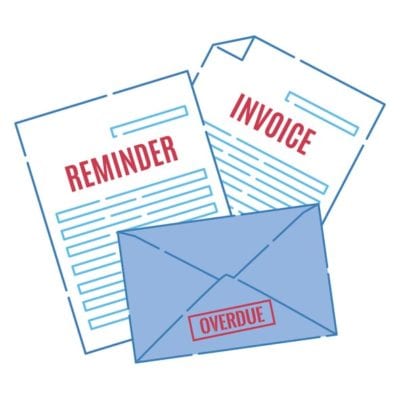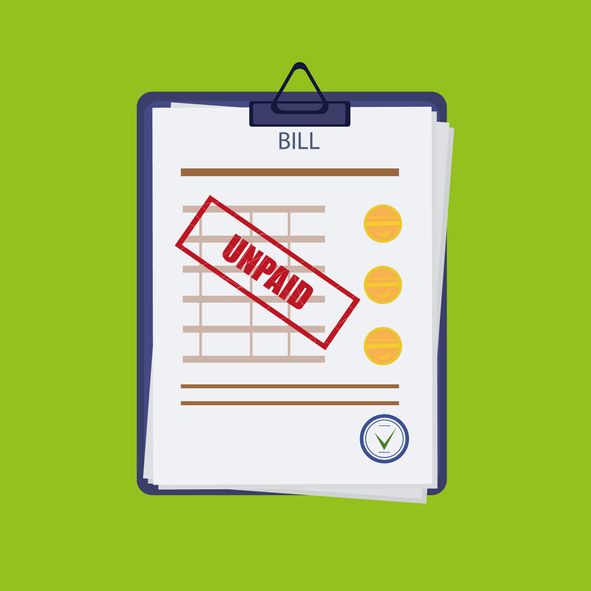Keeping the Balance Between Collections and Customer Relations
If you want to maintain a healthy cash flow, you must keep on top of your accounts receivable, and that will inevitably mean sometimes chasing late payments. But collecting overdue accounts must be handled properly, because, on the one hand, you must be firm enough to ensure that you get paid. But, on the other hand, you do not want to be so uncompromising that you lose valuable customers.
Collecting overdue accounts is something of a balancing act. However, the bottom line is that your customers are obligated to fulfill their side of the bargain. So, you have every right to chase the payment of delinquent accounts. Here are some tips on how to collect debts while minimizing the risk of losing customers.
Communicate Credit Terms
You will avoid a lot of doubt and confusion if a customer’s terms and conditions are made clear from the outset. So, the salesperson should discuss payment terms when the account is opened. And the agreed terms should be clearly stated on sales invoices and account statements. Clearly defined and communicated payment terms will also help avoid further disputes should the account be later passed to a collection agency.
Rank Customers
It can be helpful to classify customers according to their importance to the business. Ranking customers in this way will allow you to use collections tactics and escalation procedures appropriate for each customer. For example, escalating the collection tactics for a critical customer account might require the prior approval of a senior manager. On the other hand, smaller customer accounts might be escalated to final demands faster and without authorization.
Separate Slow Payers from Non-Payers
Some customers will persistently pay late, while others may have genuine cash problems and may not pay at all. So, you may need to adopt different approaches for each of these types of accounts. For example, the persistent late payers may merely need a monthly reminder before they pay. In which case, getting too heavy-handed with them would be unnecessary and might cause a breakdown in the relationship. It would be best, though, to tackle the potential non-payers head-on to minimize the risk of suffering a bad debt. So, flagging the persistent late payers will help ensure that you take the appropriate approach for each type of customer.
Tackle Overdue Accounts Promptly
Sending reminders or statements and making calls as soon as an account is overdue can help avoid the need for more drastic action later. Suppose an account is only a few days delinquent, for example. In that case, the first collection call might be in the guise of a polite courtesy to call to check that the customer has no issues with the account. However, if you leave it too late, your first call might be to threaten further action, which could upset an otherwise good customer.
Ensure Accuracy of Accounts
When you are making collection calls, you need to be sure that you have your facts right. So, it would be helpful to ensure that the customer’s account is up to date and that there are no outstanding invoice disputes. Chasing payment of disputed invoices will further anger customers who already have had cause to complain about your company.
Consider Outsourcing Accounts Receivable
Collections can be extra challenging for small businesses when the same person acts as the salesperson and credit controller. One day you might be bending over backwards to win a new order, but the next day you could be demanding a late invoice payment. Even in large organizations, conflicts between the accounts receivable and sales teams can arise. So, sometimes it can be helpful to outsource the accounts receivable function. Or, if appropriate, factoring sales invoices would achieve the same end and provide a boost to working capital.
Use Personal Connections
Collecting debt should not be the sole responsibility of the collections or accounts receivable departments. Other team members also have a vested interest in clearing outstanding debts, including account managers, salespeople, and senior management. And, sometimes, people outside the finance department can be more effective at collecting the debt. So, don’t be afraid to leverage the personal connections that other employees might have with delinquent customers. For example, an account manager might be able to circumvent the accounts department and go straight to the top to get an invoice paid. Using personal relationships like this can avoid the need for any strongly worded letters or legal threats, and keep the customer relationship sweet.
Consider Alternative Terms for Persistent Late Payers
There may be occasions when your payment terms cannot be synchronized with a customer’s payment cycle. For example, your standard terms might be 15 days from the date of the invoice, but your customer only ever pays vendors at the end of each month. In cases like this, chasing overdue invoices will not only be fruitless, it could also sour the relationship with the customer. So, it might be best to adjust your terms to suit the customer, especially if the customer is a reliable payer and valuable to your business. However, you might also want to consider factoring in the cost of the late payments when you come set prices for late-paying customers.
Offer Repayment Plans for Valued Customers
Credit control can be as much about accommodating solutions as it about demanding adherence to payment terms. After all, the objective is to get paid within a reasonable time, not to punish customers experiencing genuine cash flow problems. So, sometimes, it will be in both parties’ interest to agree on an acceptable repayment plan for overdue sales invoices. But, of course, before offering any payment plan, the risk to the business must be assessed. And, decisions will need to be made regarding continuing to supply the customer while overdue invoices remain unsettled. However, finding a mutually acceptable solution could strengthen rather than weaken the customer relationship.
Adopt a Consistent, Polite but Firm Approach
Whether it is commercial or domestic debt, adopting an aggressive attitude to collections from the first phone call is unlikely to work, and an aggressive approach is what will lead to a customer closing their accounts and your business gaining a bad reputation. Of course, you have every right to pursue what you are owed. But it is possible to be firm and persistent without being rude and aggressive. So, try not to take it personally and get angry when a customer is overdue. Instead, it is best to approach collections in a detached, matter-of-fact way. If you keep it professional, it will be much easier to rebuild the customer relationship after the debt has been settled.
Pass Debts to a Collection Agency When Necessary
No company wants to lose valuable customers. But customers that do not pay their invoices have no value. So, some overdue accounts must be passed to a debt collection agency or a lawyer for action. In such cases, it is best practice to give advance notice to the customer that further action is imminent, which will often elicit payment. And, if the final wanting is worded in the right way, the relationship may still be recoverable. For example, explain to the customer that you have no alternative but to take to further action. However, once an account has reached this stage, you will most likely not wish to take the risk of doing any more business with the customer.
The Bottom Line
In general, businesses expect to be chased when they haven’t paid invoices on time. So, if payment terms are transparent and collection calls are made in a business-like fashion, chasing overdue invoices needn’t sour a business relationship. However, businesses mustn’t fail to collect invoices for fear of losing customers. Sometimes, the long-term customer relationship must be sacrificed to safeguard cash flow, and ultimately, the business.
About Universal Funding
Universal Funding is a nationwide invoice factoring solutions leader, supporting growth-focused businesses with scalable factoring solutions. With its invoice factoring, payroll funding, and purchase order financing services, Universal Funding provides clients with the working capital needed to grow and support their businesses without taking on new debt. Ranked as one of the nation’s top invoice factoring companies, Universal Funding provides cash flow financing for businesses all across the United States.


